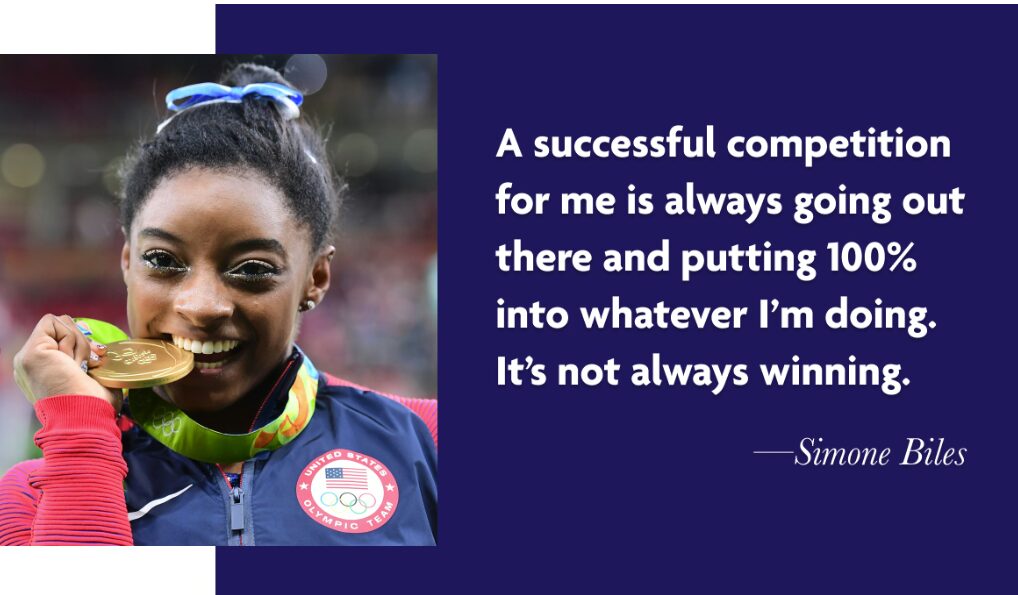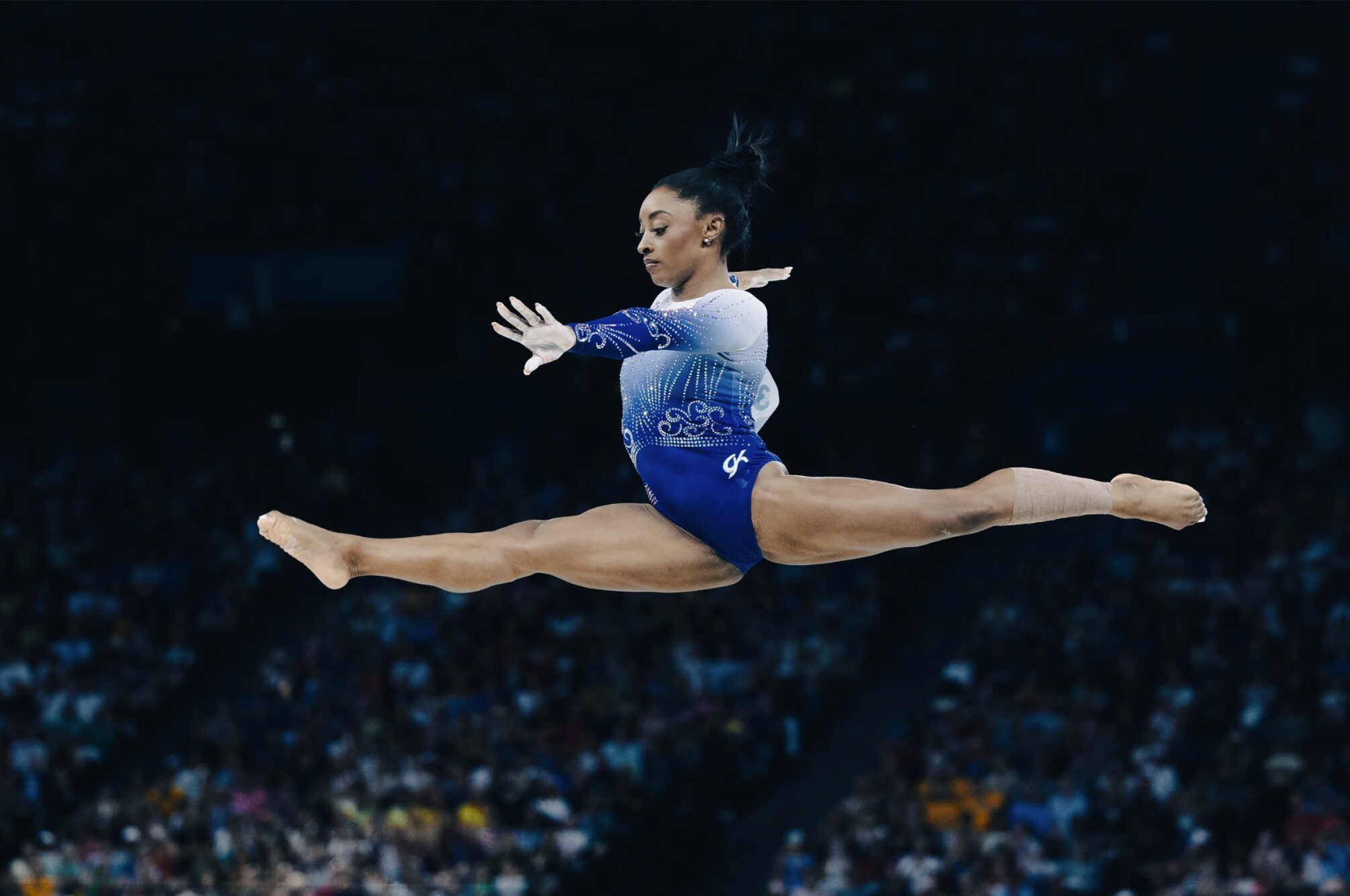
Simone Biles’ statement about feeling “greedy” if she were to return for the 2028 Olympics reveals a profound shift in both her personal outlook and the broader perspective on athletic careers. Biles, widely regarded as one of the greatest gymnasts of all time, has already achieved more than most athletes could dream of in one lifetime. However, her words also illustrate a crucial change in how athletes today view their careers, particularly when compared to athletes from previous generations, who often pushed their bodies beyond their limits in pursuit of further glory. This evolution in mindset can be attributed to several factors, including the growing recognition of mental health, the increasing longevity of careers, and a broader understanding of personal well-being.
The Shift Toward Humility and Self-Awareness
Simone Biles’ statement, “I’m at a point in my career where I’m humble enough to know when to be done,” speaks volumes about the growing trend of humility and self-awareness in modern athletes. Historically, athletes were often expected to push themselves to the extreme, with little room for introspection about their own physical or mental limits. In the past, the notion of retiring early was often viewed with a sense of failure or defeat, but Biles’ approach demonstrates a more mature, thoughtful attitude toward her career trajectory.
Biles, at 27 years old, is at the peak of an era in which athletes are more aware of their mental and physical health than ever before. Over the last decade, there has been a significant shift in how the sports world addresses mental health, burnout, and the impact of prolonged competition on both body and mind. This change is partly due to athletes like Biles herself, who have spoken openly about their struggles. At the Tokyo 2020 Olympics, Biles famously withdrew from several events to focus on her mental health, an act that, though criticized by some, was ultimately seen as an act of tremendous bravery. She prioritized her well-being over the pressures of competing for more medals, and in doing so, she set a powerful precedent.
This growing recognition of the importance of mental and emotional health has influenced how athletes in all sports view their careers. Biles’ ability to say “no” to the 2028 Olympics speaks to a level of self-reflection that is becoming more common in the modern era of sports. It is a shift away from the notion of athletes as machines that can endlessly push themselves toward perfection without consideration of the toll it takes on their well-being.
Pushing Beyond Limits
Looking back at athletes from past generations, there was often a prevailing mentality of pushing through pain, even at great personal cost. For example, in gymnastics, athletes like Nadia Comăneci or Mary Lou Retton became symbols of success in their respective Olympic Games, achieving immense fame and glory. However, they often paid the price in terms of long-term injuries or mental strain. The culture surrounding these athletes was one that celebrated the pursuit of perfection at any cost, often encouraging them to compete until they had nothing left to give.
This mentality of pushing beyond one’s limits often came at the cost of an athlete’s physical and mental health. In gymnastics, for instance, many gymnasts were forced to retire prematurely due to the intense physical demands of the sport. The fear of not competing at the highest level or of being considered “washed up” was a powerful motivator, but it also came with a tremendous personal cost. The toll on the body from the sport’s rigorous training, combined with the intense pressure to perform, left many athletes with lifelong injuries and scars—physical and emotional.
While the ambition and tenacity of athletes from these eras were admirable, they often lacked the support systems or cultural acceptance of mental and emotional health that we see today. When athletes were burned out or struggling mentally, the prevailing attitude was to push through, not to step back. In that environment, taking a break or retiring early could be seen as a sign of weakness. The pressure to continuously perform—and the expectation that athletes should “never give up”—was overwhelming.
Simone Biles, however, embodies a new era of athletics, one that values self-awareness and mental health. Her decision to contemplate her future in the sport with a humble acknowledgment of her limits is a radical departure from the push-to-the-max ethos of past generations.

Humility and Grace in Retirement
Biles’ choice to potentially bow out of the 2028 Olympics is also a demonstration of grace and humility. There is a dignity in knowing when it’s time to step away. Retiring at the peak of one’s career is a rare and difficult decision for many athletes, but Biles’ approach illustrates how retirement can be a positive and empowering choice rather than a defeat.
For Biles, stepping away from the competitive arena when she feels it is time demonstrates a mature understanding of what her body and mind need. Her words about feeling “greedy” if she were to return to the Olympics highlight the awareness that, after achieving so much, continuing to chase additional glory could undermine her own health and happiness. This represents a break from the traditional narrative where athletes are expected to compete until their bodies can no longer withstand the physical demands. Instead, Biles’ mindset is one that values balance, self-care, and the importance of knowing when to exit the stage gracefully.
The concept of “knowing when to be done” is often less romanticized in the sports world, but for athletes like Biles, it is crucial. She has already secured her place in history, with a record-breaking number of gold medals and titles to her name. What more is left for her to prove? In many ways, her decision to retire on her own terms could be seen as the ultimate victory—one that showcases her mastery not only in gymnastics but in life itself.
What Will She Do Next?
While Simone Biles may be stepping away from competitive gymnastics, it is unlikely that she will fade into the background. Athletes of her caliber often transition into other areas after retirement, whether that be in coaching, mentoring, or public speaking. In Biles’ case, her advocacy for mental health, particularly in the context of sports, is likely to remain a central part of her future endeavors. After her public struggles in Tokyo, Biles became an important figure in the conversation about mental health in athletics, helping to destigmatize the topic and encourage others to prioritize their well-being.
Biles has also expressed interest in starting a family and focusing on personal projects, which will likely become a bigger priority in the coming years. While she may no longer compete at the Olympics, her influence in the sport of gymnastics will undoubtedly continue. She may choose to become an ambassador for the sport, mentoring younger athletes, or even using her platform to support causes that are close to her heart. Additionally, given her growing popularity and ability to connect with fans on social media, Biles could pursue entrepreneurial ventures or other opportunities that align with her values.
Ultimately, Simone Biles’ decision to potentially retire from competitive gymnastics marks the end of one chapter, but it is also the beginning of a new one. Her legacy, however, will not be confined to the vault or the uneven bars. Instead, it will be defined by her courage, humility, and ability to lead with grace in both her athletic and personal life.
Simone Biles’ reflection on her career and potential retirement from the Olympics reflects a larger shift in how athletes approach their professional lives. The idea that retiring on your own terms, with humility and self-awareness, is becoming increasingly common, particularly among athletes who have achieved everything they set out to do. In a world where the pressures to perform can be overwhelming, Biles’ ability to prioritize her well-being and make decisions based on what is best for her demonstrates a refreshing new paradigm in athletics. As she contemplates what comes next, there is no doubt that her legacy—whether or not she competes again—will be defined by her strength, resilience, and wisdom.







